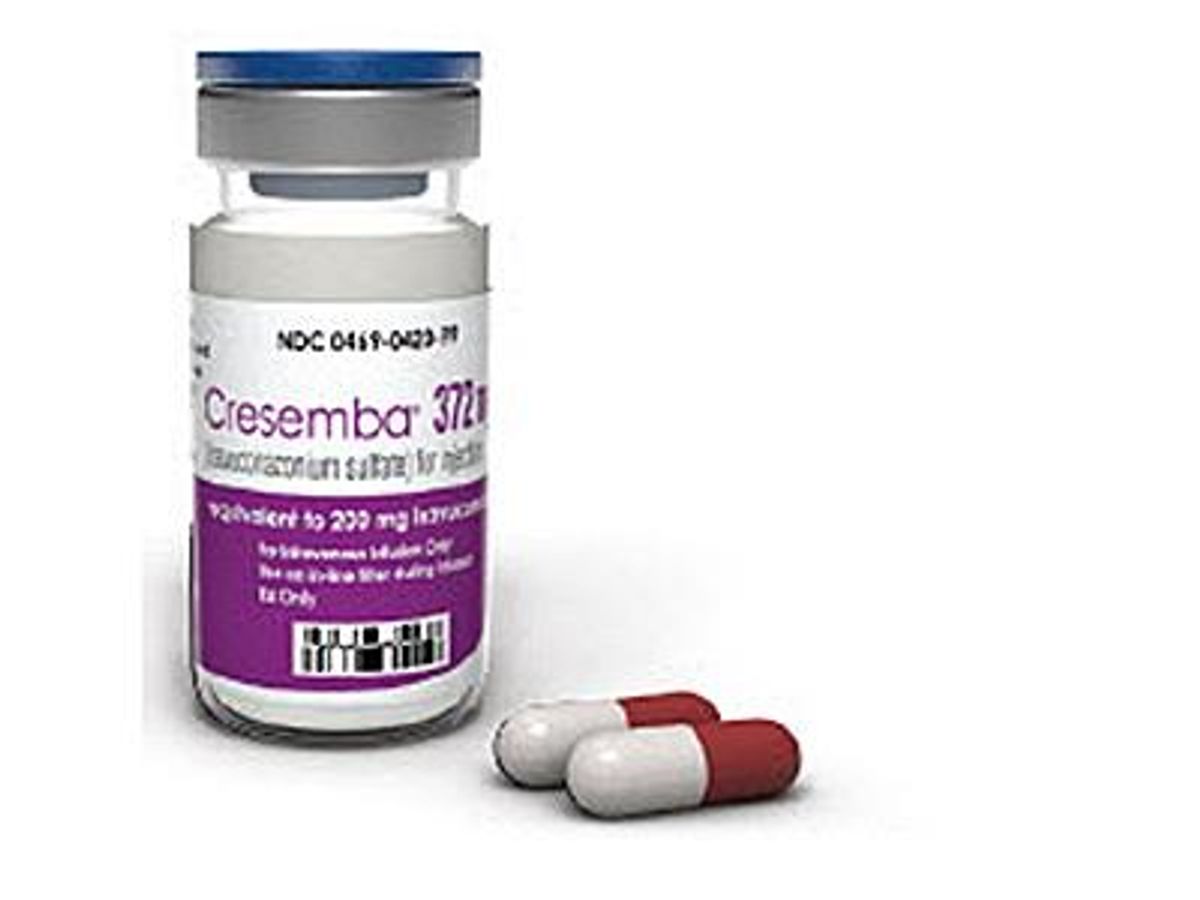A new drug, recently approved by the U.S. Food and Drug Administration may be a literal lifesaver for people living with HIV who are fighting invasive (and too often fatal) fungal infections.
The FDA has approved Astellas’ new drug Cresemba, an isavuconazonium sulfate medication that treats two life-threatening fungal infections that predominantly attack immunocompromised patients, including those with HIV.
Cresemba has been approved to treat both invasive aspergillosis and invasive mucormycosis (also known as zygomycosis), two invasive fungal infections (IFIs) associated with high morbidity and mortality rates. IFIs are debilitating and life-threatening infections that attack organs and other internal tissues and can spread rapidly through the bloodstream. Fungi commonly involved in IFIs include yeasts such as Candida and the molds mentioned above (Aspergillus and Mucorales).
The approval of Cresemba marks the unveiling of an important new treatment for patients with these fungal infections that too frequently turn deadly. Health experts say it is a significant addition to the relatively slim treatment options currently available.
“We’re pleased with the FDA’s approval of Cresemba for use in treating patients with these life-threatening infections,” said Dr. Bernie Zeiher, the executive vice president of Astella’s global development who also heads their infectious disease department. “We are proud to be able to offer a new treatment for patients in an area for which there is a significant unmet medical need.”
Thomas F. Patterson, the division of infectious diseases chief at The University of Texas Health Science Center at San Antonio, said, “Cresemba is an important new therapy for physicians treating patients with invasive aspergillosis and invasive mucormycosis fungal infections. Patterson, who has been involved in the clinical trials since they began, added that it was “extremely gratifying” to give doctors and patients new treatment options in their fight against these potentially deadly infections.
The safety and efficacy of Cresemba has been demonstrated in two Phase 3 clinical trials in adult patients with invasive fungal infections. The first (Secure) study was a randomized, double-blind, active-control study of 516 adult patients with invasive aspergillosis; the second (Vital) study an open-label non-comparative study of Cresemba in adult patients with invasive aspergillosis and renal impairment or in patients with invasive fungal disease caused by other rare fungi.
The Secure study examined the mortality (due from all causes) of patients during 42-days of treatment and found that patients on Cresemba had nearly 2 percent greater chance of survival than those being treated with voriconazole (a triazole antifungal medication previously approved to treat serious, invasive fungal infections).
The vital study, focused on a subpopulation of 37 patients with invasive mucormycosis treated with Cresemba. While 38 percent of the patients on Cresemba passed away, there was a 62 percent survival rate. Unfortunately, this is what passes for good news in a field when some studies show typical mortality rates frequently climb as high as 61 percent.
As for side effects, Cresemba demonstrated “similar rates” of non-fatal adverse events as those associated with voriconazole. The most frequent side effects were: nausea (26 percent), vomiting (25 percent), diarrhea (22 percent), headache (17 percent), elevated liver chemistry tests (17 percent), hypokalemia (14 percent), constipation (13 percent), dyspnea (12 percent), cough (12 percent), peripheral edema (11 percent), and back pain (10 percent).
Cresemba will be available in capsule form and intravenous injections.
HIV positive patients should be aware that coadministration of Cresemba and high-dose ritonavir (400 mg every 12 hours) is not recommended. This means those taking the protease inhibitor, Norvir (aka ritonavir, generally prescribed at 600 mg twice daily to prevent the replication of HIV), should not take Cresemba.
Likewise, those taking the the anti-seizure medicine carbamazepine, the the tuberculosis drug rifampin, or other strong CYP3A4 inducers like St. John’s Wort, or long acting barbiturates, should avoid Cresemba.
Cases of severe hepatic adverse drug reactions including hepatitis, cholestasis, or hepatic failure including death have been reported in patients with serious underlying medical conditions (like HIV) during treatment with azole antifungal agents, including Cresemba.
Liver function should be evaluated by a physician before and during Cresemba treatment. It should not be used during pregnancy or by those who experience severe skin reactions and it is also contraindicated in persons with known hypersensitivity to isavuconazole.
For those HIV patients who are also facing debilitating and even fatal cases of fungal infections, Cresemba may literally be a lifesaver.
As always, talk with your doctor before beginning (or discontinuing) and medical treatment.

















































































